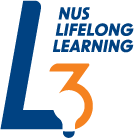Objectives
Knowledge and Insight (Understanding)
- Erikson’s psychosocial tasks for adolescents: identity formation versus confusion; relations with parents, peers, partners.
- Biopsychosocial approach to sexuality and sexual health.
- Biopsychology of sexual orientation versus gender dysphoria.
- Biopsychosocial developmental effects of chronic conditions on adolescents, including effects on autonomy and compliance.
- Psychosocial assessment using H.E.A.D.S.S. framework (used in ideal settings versus time-pressured busy clinic settings).
- Sleep physiology, sleep hygiene and identifying risks for sleep disorders.
- Mental health screening: spirituality, moods, anxiety, stress, bullying/cyberbullying, depression, suicidal threats, including maladaptation, coping mechanisms and resilience building.
- Addiction screening: gaming, social media, internet, smoking, alcohol, substance use, other risk-taking behaviours.
- Growth and development: pubertal stages, early mid to late adolescence.
- Normal versus abnormal behaviours: adolescent adjustment reactions versus behavioural problems; oppositional defiant disorders, conduct issues.
- Learning issues: dyslexia, attention deficit hyperactivity disorders, autistic spectrum disorders.
- Eating disorders: normal versus abnormal dieting.
- The pregnant teen.
- Contraception, STIs screening and management.
- Skin problems such as acne, and related psychosocial effects.
- Youth friendly consultation: confidentiality, ethics, medico-legal.
- Motivational interviewing: strategies to facilitate adolescent behaviour change.
- Anticipatory guidance for adolescents (for parents/ caregivers).


